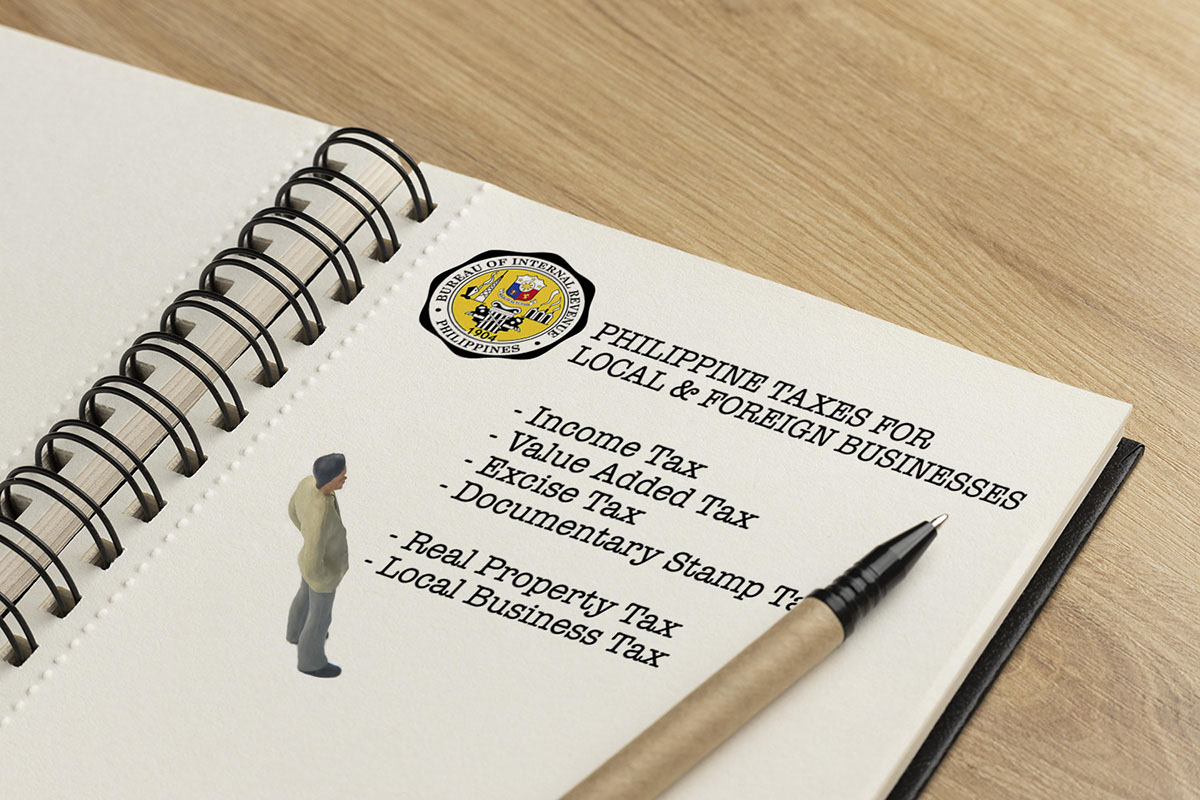Home>Finance>What Is The Purpose Of The Small Business Administration?


Finance
What Is The Purpose Of The Small Business Administration?
Published: November 25, 2023
Learn how the Small Business Administration supports finance for small businesses, providing loans, access to capital, and resources for growth and success.
(Many of the links in this article redirect to a specific reviewed product. Your purchase of these products through affiliate links helps to generate commission for LiveWell, at no extra cost. Learn more)
Table of Contents
- Introduction
- Understanding the Small Business Administration (SBA)
- History of the Small Business Administration
- Functions and Responsibilities of the SBA
- Providing Support and Assistance to Small Businesses
- Access to Capital and Financing Programs
- Government Contracting Opportunities
- Disaster Assistance Programs
- Counseling and Training Services
- Advocacy for Small Businesses
- Conclusion
Introduction
The Small Business Administration (SBA) plays a crucial role in supporting and promoting the growth of small businesses in the United States. As a federal agency, the SBA provides a wide range of resources, programs, and services aimed at helping entrepreneurs and small business owners navigate the complex landscape of starting, managing, and growing their businesses.
With its mission to “aid, counsel, assist and protect the interests of small business concerns,” the SBA acts as a valuable resource for small businesses, especially during times of economic uncertainty and challenges. By offering access to capital and financing, government contracting opportunities, disaster assistance programs, counseling and training services, and advocacy for small business interests, the SBA plays a crucial role in fostering entrepreneurship, job creation, and economic development.
In this article, we will delve deeper into the purpose and functions of the Small Business Administration, exploring its history, key responsibilities, and the various ways it supports small business owners and entrepreneurs. By understanding the role of the SBA, you can take advantage of its resources and services to improve the chances of success for your own small business.
Understanding the Small Business Administration (SBA)
The Small Business Administration (SBA) is a federal agency established in 1953 with the primary purpose of supporting and promoting small businesses in the United States. The SBA serves as a valuable resource for entrepreneurs and small business owners by providing access to capital, business counseling, and valuable resources to help them start, manage, and grow their businesses.
One of the key roles of the SBA is to advocate for the interests of small businesses by ensuring they have a fair and equal opportunity to compete in the marketplace. The agency works to create a favorable environment for small business growth through policy advocacy, research, and analysis of the impact of government regulations on small businesses.
The SBA works closely with other federal agencies, state and local governments, and private sector organizations to provide a comprehensive support system for small businesses. It offers a range of programs and services tailored to address the specific needs and challenges faced by small business owners.
Through its network of district offices across the country, the SBA provides resources and assistance to entrepreneurs and small business owners. These resources include training and counseling services, access to capital and financing, government contracting opportunities, disaster assistance programs, and advocacy for small business interests.
The SBA plays a crucial role in promoting entrepreneurship and economic development by providing targeted support to underserved communities, including women, veterans, and minority-owned businesses. It aims to level the playing field and create equal opportunities for these individuals to start and grow successful businesses.
By understanding the functions and services offered by the Small Business Administration, you can take advantage of the valuable resources and programs available to you as a small business owner. Whether you are looking for funding, training, or guidance on navigating the complexities of government contracting, the SBA is there to support you every step of the way.
History of the Small Business Administration
The Small Business Administration (SBA) has a rich history dating back to its establishment in 1953. The agency was created in response to the need for government support and assistance to small businesses, recognizing their vital role in driving economic growth and job creation.
During the early 20th century, small businesses faced numerous challenges, including limited access to capital and resources, difficulty navigating government contracts, and a lack of support networks. The SBA was formed to address these challenges and provide a centralized hub for small business support.
The SBA’s roots can be traced back to the Reconstruction Finance Corporation (RFC), established during the Great Depression in 1932. The RFC provided loans to businesses affected by the economic downturn, with a focus on large corporations. However, it became clear that small businesses also required assistance to recover and thrive.
In 1953, the Small Business Act was signed into law, creating the Small Business Administration as an independent agency within the federal government. The passage of this act marked a significant milestone in recognizing the importance of small businesses in the U.S. economy and the need for dedicated support.
Over the years, the SBA expanded its reach and services to better serve the evolving needs of small businesses. It established district offices across the country, forming a network of resources to provide localized support and assistance.
One of the watershed moments for the SBA was the passing of the Small Business Investment Act of 1958. This act allowed the SBA to create the Small Business Investment Company (SBIC) program, which facilitated the flow of private equity capital to small businesses.
In subsequent years, the SBA implemented various loan programs, including the flagship 7(a) Loan Program, designed to provide small businesses with access to affordable capital. These loan programs continue to be a vital resource for entrepreneurs and small business owners in need of financing.
Throughout its history, the SBA has adapted to the changing economic landscape and emerging challenges faced by small businesses. It has provided support during periods of economic downturn, such as the Great Recession, by offering disaster assistance programs and access to capital.
Today, the Small Business Administration remains committed to its founding principles of aiding, counseling, assisting, and protecting the interests of small businesses. It continues to evolve and innovate to best serve the needs of entrepreneurs, promoting economic growth and resilience in the small business sector.
Functions and Responsibilities of the SBA
The Small Business Administration (SBA) is tasked with several important functions and responsibilities aimed at supporting and assisting small businesses in the United States. By understanding these functions, entrepreneurs and small business owners can take advantage of the resources and programs offered by the SBA to help them succeed.
1. Providing Support and Assistance: The SBA offers a range of support services to small businesses, including access to capital, counseling, and business development resources. Through its network of district offices and resource partners, such as Small Business Development Centers (SBDCs) and SCORE Mentors, the SBA provides guidance and expertise to entrepreneurs in areas such as business planning, marketing, and financial management.
2. Access to Capital and Financing Programs: One of the primary roles of the SBA is to facilitate access to capital for small businesses. The agency does this through various loan programs, including the flagship 7(a) Loan Program, which provides guarantees on loans made by approved lenders. Additionally, the SBA offers microloans, disaster loans, and other financing options to meet the diverse needs of small businesses.
3. Government Contracting Opportunities: The SBA helps small businesses navigate the complex world of government contracting. It provides certifications and resources to help small businesses compete for federal contracts, including the Women-Owned Small Business (WOSB) Program, Service-Disabled Veteran-Owned Small Business (SDVOSB) Program, and the 8(a) Business Development Program, which assists socially and economically disadvantaged businesses.
4. Disaster Assistance Programs: In times of natural disasters or emergencies, the SBA plays a crucial role in providing disaster assistance to affected small businesses. This assistance can come in the form of low-interest loans to help rebuild, repair, or recover from the event.
5. Counseling and Training Services: The SBA offers counseling and training services to empower small business owners with the skills and knowledge they need to succeed. Through partnerships with SBDCs and SCORE Mentors, entrepreneurs can access one-on-one counseling, workshops, and training programs on various business topics.
6. Advocacy for Small Businesses: The SBA serves as a powerful advocate for small businesses at the federal level. It conducts research, analysis, and reports on the impact of government policies and regulations on small businesses, providing a voice for their interests and concerns.
In summary, the Small Business Administration plays a vital role in supporting and empowering small businesses in the United States. By offering access to capital, counseling services, government contracting opportunities, disaster assistance, and advocacy, the SBA helps entrepreneurs and small business owners overcome challenges and succeed in today’s competitive market.
Providing Support and Assistance to Small Businesses
The Small Business Administration (SBA) is dedicated to providing robust support and assistance to small businesses across the United States. Through its wide range of resources, programs, and services, the SBA aims to help entrepreneurs and small business owners navigate the complexities of starting, managing, and growing a successful business.
One of the primary ways the SBA offers support is through its network of district offices and resource partners, which include Small Business Development Centers (SBDCs) and SCORE Mentors. These local branches provide personalized counseling and guidance to small businesses, offering expertise in areas such as business planning, marketing, financial management, and technology adoption.
Additionally, the SBA provides access to capital through its various loan programs. The flagship 7(a) Loan Program guarantees loans made by approved lenders, making it easier for small businesses to secure funding. The SBA also offers microloans, disaster loans, and specialized financing options to meet the unique needs of different industries and business types.
Besides financial support, the SBA helps small businesses navigate government contracting opportunities. The agency certifies businesses as Women-Owned Small Businesses (WOSBs), Service-Disabled Veteran-Owned Small Businesses (SDVOSBs), and provides assistance through the 8(a) Business Development Program for socially and economically disadvantaged businesses. By encouraging small businesses to participate in federal government contracts, the SBA helps stimulate economic growth and create job opportunities.
In times of natural disasters or emergencies, the SBA plays a crucial role in providing disaster assistance to affected small businesses. Through its disaster loan program, the SBA offers low-interest loans to help businesses rebuild, repair, and recover. This support is essential in helping small businesses get back on their feet and resume operations after a disruptive event.
Recognizing the importance of education and skills development, the SBA offers counseling and training services to empower small business owners. SBDCs and SCORE Mentors provide one-on-one counseling, workshops, and training programs on various aspects of running a business. This valuable support helps entrepreneurs acquire the knowledge and skills necessary to effectively manage their businesses and adapt to evolving market trends.
Lastly, the SBA serves as an advocate for small businesses at the federal level. It conducts research, analysis, and reports on the impact of government policies and regulations on small businesses. By representing their interests and concerns, the SBA works to ensure a favorable business environment for small enterprises, promoting fairness and equal opportunities in the marketplace.
Overall, the Small Business Administration plays a pivotal role in providing support and assistance to small businesses. By leveraging the resources and programs offered by the SBA, entrepreneurs and small business owners can access the tools and expertise needed to overcome challenges, achieve growth, and achieve long-term success.
Access to Capital and Financing Programs
Access to capital is one of the biggest challenges faced by small businesses. Recognizing this, the Small Business Administration (SBA) offers a variety of financing programs to help entrepreneurs and small business owners secure the funding they need to start, manage, and grow their businesses.
The flagship loan program offered by the SBA is the 7(a) Loan Program. This program provides guarantees on loans made by approved lenders, reducing the risk for lenders and making it easier for small businesses to access capital. With loan amounts of up to $5 million, the 7(a) loans can be used for a wide range of business purposes, including working capital, equipment purchases, and real estate acquisitions.
In addition to the 7(a) Loan Program, the SBA also offers other financing options tailored to specific needs. For small businesses requiring smaller loan amounts, the SBA Microloan Program provides loans of up to $50,000 through nonprofit lenders. These loans can be used for working capital, inventory purchase, equipment, or machinery.
For businesses affected by natural disasters, the SBA provides disaster loan assistance. Through this program, low-interest loans are offered to help small businesses recover and rebuild after a disaster. This includes physical damage loans to repair or replace damaged property, as well as economic injury loans to provide working capital for businesses facing temporary revenue loss due to the disaster.
In addition to these loan programs, the SBA also facilitates access to capital through its Surety Bond Guarantee (SBG) Program. This program helps small businesses obtain surety bonds that are required for certain government and private contracts. By guaranteeing the bonds, the SBA reduces the financial risk for surety companies, making it easier for small businesses to secure contracts.
Furthermore, the SBA encourages lending to underserved communities through initiatives such as the Community Advantage Program and the Small Loan Advantage Program. These programs aim to foster economic development in low-income areas and provide greater access to capital for small businesses in underserved markets.
To facilitate access to capital, the SBA collaborates with a network of lenders, including banks, credit unions, and non-profit lenders. These lenders work with the SBA to evaluate loan applications and provide financial support to small businesses with less traditional collateral or credit histories. The SBA’s partnership with these lenders provides entrepreneurs with more options and greater flexibility in securing the capital they need.
By providing access to capital and financing programs, the SBA plays a crucial role in helping small businesses overcome the hurdle of funding. Whether through loan guarantees, disaster loan assistance, or specialized programs, the SBA ensures that entrepreneurs have the financial resources necessary to turn their ideas into thriving businesses.
Government Contracting Opportunities
The Small Business Administration (SBA) plays a vital role in opening up government contracting opportunities for small businesses. Through various initiatives and programs, the SBA aims to promote fair competition and provide small businesses with equal access to federal contracts.
Government contracting can be a lucrative avenue for small businesses, as the federal government is the largest buyer of goods and services in the United States. However, the process of navigating government contracts can be complex and intimidating. The SBA works to level the playing field and help small businesses compete effectively in this arena.
One key program offered by the SBA is the Women-Owned Small Business (WOSB) Program. This program certifies businesses that are at least 51% owned, controlled, and managed by women. By obtaining WOSB certification, businesses gain access to federal contracting opportunities set aside specifically for women-owned companies.
Similarly, the Service-Disabled Veteran-Owned Small Business (SDVOSB) Program supports small businesses that are at least 51% owned, controlled, and managed by veterans with service-connected disabilities. SDVOSB certification provides access to government contracts set aside for veteran-owned businesses.
Another notable program is the 8(a) Business Development Program. Designed to assist socially and economically disadvantaged businesses, this program provides contracting opportunities, business development support, and mentorship to eligible small businesses. The 8(a) program helps small businesses compete effectively in the federal marketplace and access sole-source contracts.
The SBA also provides guidance and resources to help small businesses understand the government contracting process. This includes assistance in registering in the System for Award Management (SAM), the primary database used by the federal government to collect, validate, and store vendor information. The SBA also offers training programs and counseling services to help small businesses navigate the complexities of government contracts.
Beyond these specific programs, the SBA works to ensure fair and equal treatment for small businesses in the federal contracting process. It advocates for policies and regulations that promote small business participation in government contracts and provides resources to help small businesses understand compliance requirements.
Through its efforts, the SBA aims to increase the number of small businesses that successfully compete for government contracts. By providing specialized programs, certifications, and support services, the SBA helps small businesses seize the valuable opportunities presented by federal contracts, stimulate economic growth, and create job opportunities.
Disaster Assistance Programs
The Small Business Administration (SBA) is committed to helping small businesses recover and rebuild in the face of natural disasters and emergencies. Through its disaster assistance programs, the SBA provides vital support and financial assistance to businesses affected by these unforeseen events.
Disasters, such as hurricanes, wildfires, floods, and earthquakes, can have devastating effects on small businesses. The SBA’s disaster assistance programs offer low-interest loans to help businesses repair physical damage, replace inventory, and cover working capital expenses during the recovery period.
The SBA’s primary disaster loan program is the Economic Injury Disaster Loan (EIDL). This program provides working capital loans to businesses suffering economic injury due to a disaster. These loans can be used to alleviate the financial strain caused by temporary revenue loss, allowing businesses to continue operations, pay bills, and meet their financial obligations.
In addition to the EIDL program, the SBA also offers Physical Disaster Loans to help businesses repair or replace damaged property and assets. These loans provide the necessary funding to rebuild infrastructure, repair equipment, and restore business premises to pre-disaster conditions.
When a disaster is declared by the President, the SBA establishes Disaster Loan Outreach Centers to provide in-person assistance to affected small businesses. These centers serve as a resource hub, offering guidance on the loan application process, providing information on eligibility requirements, and offering one-on-one support tailored to the specific needs of each business.
Furthermore, the SBA collaborates with other federal agencies and organizations to streamline the disaster recovery process and ensure a coordinated response. The goal is to provide seamless assistance to small businesses during these challenging times.
It’s important to note that the SBA’s disaster assistance programs are not limited to physical businesses. Home-based businesses, agricultural enterprises, and even non-profit organizations can also qualify for assistance. The SBA recognizes the diverse nature of small businesses and strives to support a wide range of enterprises.
Through its timely and accessible disaster assistance programs, the SBA aids small businesses in recovering from unforeseen events. By providing financial support, guidance, and resources, the SBA helps small businesses regain their footing, rebuild their operations, and contribute to the economic recovery of their communities.
Counseling and Training Services
The Small Business Administration (SBA) is committed to equipping small business owners with the knowledge and skills necessary for success. Through its counseling and training services, the SBA provides valuable resources and support to help entrepreneurs navigate the complexities of running a business and overcome challenges along the way.
One of the primary counseling services offered by the SBA is through its network of Small Business Development Centers (SBDCs). SBDCs are located throughout the United States and provide free, one-on-one counseling and guidance to entrepreneurs and small business owners. These counseling sessions cover a wide range of topics, including business planning, financial management, marketing strategies, and more.
Another valuable counseling resource is SCORE (Service Corps of Retired Executives), a volunteer network of experienced business professionals who provide mentorship and advice to small business owners. SCORE mentors offer their expertise in specific industries or functional areas, offering guidance and insight based on their own successful careers.
The SBA also offers training programs and workshops designed to enhance the business skills and knowledge of small business owners. These programs cover a wide range of topics, including financial management, marketing and sales, e-commerce, government contracting, and technology adoption. The training sessions are often conducted by industry experts and experienced professionals who provide practical insights and best practices to help entrepreneurs thrive.
Furthermore, the SBA partners with various educational institutions, community organizations, and local government entities to offer specialized training programs tailored to the needs of specific industries or regions. These programs provide targeted training and support to small business owners, allowing them to gain industry-specific skills and knowledge.
Through its counseling and training services, the SBA aims to empower small business owners by providing them with the tools and resources they need to succeed. By accessing these services, entrepreneurs can enhance their understanding of business fundamentals, develop innovative strategies, and overcome obstacles that may arise.
It’s worth noting that the SBA’s counseling and training services are available to all small business owners, regardless of their business’s size or stage of development. Whether someone is just starting out or looking to expand an existing business, the SBA’s resources are designed to support their journey.
By leveraging the counseling and training opportunities provided by the SBA, entrepreneurs can gain valuable insights, develop critical skills, and make informed decisions that contribute to the long-term success and sustainability of their businesses.
Advocacy for Small Businesses
The Small Business Administration (SBA) serves as a strong advocate for small businesses at the federal level. Through its advocacy efforts, the SBA seeks to ensure that the interests and concerns of small businesses are represented and taken into account in government policies, regulations, and initiatives.
One of the key roles of the SBA is to conduct research, analysis, and reports on the impact of government regulations and policies on small businesses. By studying and understanding these effects, the SBA can provide valuable insights and recommendations to policymakers, helping to shape a favorable environment for small business growth.
The SBA also acts as a voice for small businesses, voicing their concerns and advocating for their needs. By building strong relationships with policymakers, the SBA raises awareness of the challenges faced by small businesses and promotes policies that support their growth and success.
Through its Office of Advocacy, the SBA actively engages in dialogue with federal agencies and legislators, providing input on proposed regulations and advocating for changes that benefit small businesses. This advocacy helps ensure that small businesses have a fair and equal opportunity to compete in the marketplace, free from unnecessary burdens or barriers.
Moreover, the SBA actively collaborates with other organizations and associations that share a common mission of supporting small businesses. Through partnerships with chambers of commerce, industry associations, and trade groups, the SBA amplifies the collective voice of small businesses and promotes their interests on a broader scale.
Additionally, the SBA facilitates communication channels between small businesses and government agencies, ensuring that the concerns of business owners are heard and addressed. This includes hosting listening sessions, town hall meetings, and other forums where small business owners can directly engage with policymakers and government officials.
Furthermore, the SBA encourages small businesses to participate in the rulemaking process by submitting comments on proposed regulations that may impact their businesses. The agency provides guidance and support to small businesses on how to effectively engage in this process, empowering them to make their voices heard.
By advocating for small businesses, the SBA helps create a business environment that fosters growth, innovation, and job creation. Small businesses contribute significantly to the overall economy, and by ensuring their concerns are considered and addressed, the SBA plays a vital role in promoting their success.
Through its advocacy efforts, the SBA continues to champion the interests of small businesses, working tirelessly to create an environment that supports their growth and prosperity.
Conclusion
The Small Business Administration (SBA) is an invaluable resource for entrepreneurs and small business owners in the United States. With a mission to aid, counsel, assist, and protect the interests of small businesses, the SBA plays a vital role in fostering entrepreneurship, job creation, and economic development.
Throughout its history, the SBA has evolved to meet the changing needs of small businesses. From providing access to capital and financing programs to facilitating government contracting opportunities, disaster assistance, counseling, and training services, the SBA offers a comprehensive suite of resources and programs tailored to support small business success.
The SBA acts as an advocate for small businesses, ensuring their voices are heard and their concerns addressed at the federal level. Through its research, analysis, and engagement with policymakers, the SBA promotes a favorable business environment, free from unnecessary burdens and regulations that may hinder small business growth.
By offering counseling and training services, the SBA equips entrepreneurs with the skills and knowledge needed to navigate the complexities of running a business. Through its vast network of district offices, SBDCs, SCORE Mentors, and educational partnerships, the SBA supports entrepreneurs’ personal and professional development, fostering a thriving small business ecosystem.
Furthermore, the SBA provides access to capital and financing programs, ensuring small businesses have the financial resources to start, grow, and expand their operations. With loan guarantees, disaster assistance loans, and specialized programs for specific business groups, the SBA helps entrepreneurs overcome the hurdle of funding and seize opportunities for growth.
In conclusion, the Small Business Administration is a valuable ally for small businesses. It provides essential support, assistance, and advocacy to help entrepreneurs navigate the dynamic business landscape and achieve sustained success. By leveraging the resources, programs, and services offered by the SBA, entrepreneurs can enhance their chances of success, create jobs, and contribute to the overall growth of the economy.














